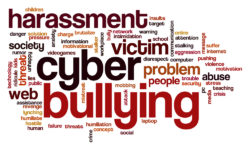Tips on Meeting People and Building Strong Friendships
We all know that friendship is a good thing. But did you know that friends have a huge impact on your happiness and quality of life? Good friends relieve stress, provide comfort and joy, prevent loneliness and isolation, and even strengthen your health. Despite their importance, close friendships don’t just happen. Many of us struggle to meet new friends and develop quality connections. Even when we’re willing to put in the time and effort, we don’t always know how to go about it. But whatever your age or circumstances, it's never too late to make new friends or reconnect with old ones. These tips can help.
Why friends are important
Our society tends to place an emphasis on romantic relationships. We think that if we can just find that right person, we’ll be happy and fulfilled. But research shows that friends are more important to psychological well-being than even our love and family relationships. Friends bring more happiness into our lives than virtually anything else. Not only that, our friendships (or lack thereof) have a powerful impact on our physical health. Studies show that a lack of social connection can be as damaging as smoking, drinking too much, or leading a sedentary lifestyle. The quality of our friendships is even tied to longevity. A recent Swedish study found that, along with physical activity, maintaining a rich social network of friends can add significant years to your life. And it’s never too late to improve your social life and increase your circle of friends.
Why online friends aren’t enough
Technology has shifted the definition of friendship in recent years. With the click of a button, we can add a friend or make a new connection. But having hundreds of online friends is not the same as having a close friend you can turn to or be with in person. Technology can facilitate social opportunities by helping you reconnect with old friends, start new relationships with people around the world who share similar interests, and maintain relationships with friends who don't live nearby. However, online friends can't hug you when a crisis hits, visit you when you're sick, or celebrate a happy occasion with you after work.
Our most important and powerful connections happen when we’re face-to-face. So make it a priority to stay in touch in the real world, not just online. You’ll get a lot more out of an in-person conversation than you will over text or social media comments.
The benefits of friendship
Good friends add special meaning to life. They help you share the good times and overcome the difficult ones. Among other things, good friends can:
- Improve your mood.Happiness can be infectious. Spending time with happy and positive friends can elevate your mood and boost your outlook.
- Help you to reach your goals.Whether you're trying to get fit, give up smoking, or otherwise improve your life, encouragement from a friend can really boost your willpower and increase your chances of success.
- Reduce your stress and depression.Having an active social life can bolster your immune system and help reduce isolation, a major contributing factor for depression.
- Support you through tough times.Even if it's just having someone to share your problems with, friends can help you cope with serious illness, the loss of a job or loved one, the breakup of a relationship, or any other challenge in life.
- Support you as you age.As you age, retirement, illness, and the death of loved ones can often leave you isolated. Having people you can turn to for company and support can provide purpose as you age and be a buffer against depression, disability, hardship, and loss. Staying socially engaged as you age keeps you feeling positive and boosts your happiness.
- Boost your sense of self-worth.Friendship is a two-way street, and the “give” side of the give-and-take contributes to your own sense of value and self-worth. Being there for your friends makes you feel needed and adds purpose to your life.
What to look for in a friend
Ideally, a friend is someone you trust who shares a deep level of understanding and communication with you. A good friend will show a genuine interest in what's going on in your life, what you have to say, and how you think and feel about things. He or she will accept you for who you are and listen to you attentively without judging you, telling your how to think or feel, or trying to change the subject.
As friendship works both ways, a friend is also someone you feel comfortable supporting and accepting, and someone with whom you share a bond of trust and loyalty. A good friend will feel comfortable sharing things about themselves with you.
Focus on the way a friendship feels, not what it looks like
When looking for new friends, try not to get too caught up in external qualifications and criteria. The most important thing in a friendship is how the relationship makes you feel—not how it looks on paper, how many things you have in common, or what others think. Ask yourself the following questions:
- Do I feel better after spending time with this person?
- Do I feel free to be myself around this person?
- Do I feel safe, or do I feel like I have to watch what I say and do?
- Is the person supportive of me? Does he or she treat me with respect?
- Is this a person I feel that I could trust?
The bottom line: it the friendship feels good, it is good. But if a person tries to control you, criticizes you, abuses your generosity, or brings unwanted danger, drama, or negative influences into your life, it’s time to take a hard look at the value of the friendship. A good friendship does not require you to act against your own values, always agree with the other person, or disregard your own needs.
How to be more friendly and social
If you tend to be introverted or shy, it can feel uncomfortable to put yourself out there socially. But you don't have to be naturally outgoing or the life of the party to make new friends. You can make the extra effort to be more friendly and open to others, while still maintaining your own personality.
- Focus on others, not yourself.The key to connecting to other people is showing interest in them. When you’re truly interested in someone else’s thoughts, feelings, experiences, stories, and opinions, it shows—and they’ll like you for it. You’ll make far more friends by showing your interest rather than trying to get people interested in you.
- Be genuine.Showing interest in others can’t be faked. If you’re just pretending to listen or care, others will pick up on it. Rather than fostering greater connection, your efforts will likely backfire. No one likes to be manipulated or placated. If you’re not genuinely interested in the other person, than stop trying to connect.
- Pay attention.Make an effort to truly listen to the other person. By paying close attention to what they say, do, and how they interact, you’ll quickly get to know them. Little things go a long way, such as remembering someone’s preferences, the stories they’ve told you, and what’s going on in their life.
Self-disclosure: the key to turning acquaintances into friends
We all have acquaintances—people we exchange small talk with as we go about our day or trade jokes or insights with online. These relationships can be fulfilling in their own right, but what if you want to turn a casual acquaintance into a true friend?
Friendship is characterized by intimacy. True friends know things about each other: their values, struggles, goals, and interests. If you’d like to transition from acquaintances to friends, the best way to do so is to open up to the other person. You don’t have to reveal your most closely-held secret. Start small with something a little bit more personal than what you normally discuss and see how the other person responds. Do they seem interested and receptive? Do they reciprocate by disclosing something about themselves?
Gauging interest
Establishing and maintaining a friendship takes time and effort, and not everyone is open to that at all times. Friendship takes two, so it’s important to evaluate whether the other person is looking for new friends.
- Do they ask you questions about yourself, as if they’d like to get to know you better?
- Do they tell you things about themselves beyond surface small talk?
- Do they give you their full attention when you see them?
- Does the other person seem interested in exchanging contact information or making specific plans to get together?
If you can’t answer “yes” to most of these questions, the person may not be the best candidate at this time for friendship. They may not be open to a new friendship now, even if they genuinely like you. Maybe their social calendar is already overfilled or they’re too busy with other responsibilities. There are many possible reasons, so try not to take it personally!
Tips for meeting new people
Proximity is a huge factor in who we become friends with. We tend to make friends with people we cross paths with regularly: people we go to school with, work with, or live next to. The more we see someone, the more likely the chance of a friendship developing. So the places you frequent regularly are a good place to look for potential friends.
Another big factor in friendship is common interests. We tend to be drawn to people we share things with: an offbeat sense of humour, hobby, the same cultural background, a shared major or career path, kids the same age. Think about the things you like to do, the causes you care about, or anything you’re passionate about. Where could you go to meet people who share the same interests?
Making new friends: Where to start
When looking for places to meet new people, try to be open to new ideas and experiences. Not everything you try will be successful but you can always learn from the experience and hopefully have some fun while you’re at it.
- Volunteering can be a great way to help others while also meeting new people. Volunteering also gives you the opportunity to regularly practice and develop your social skills.
- Take a class or join a club to meet people with common interests, such as a book group, dinner club, or sports team. Websites such as Meetup.com can help you find local groups or start your own and connect with others who share similar interests.
- Walk a dog. It's good exercise for you, great fun for the animal, and an excellent way to meet people. Dog owners often stop and chat while their dogs sniff or play with each other. If dog ownership isn't right for you, volunteer to walk dogs from a shelter or a local rescue group.
- Invite a neighbour or work colleague for a drink or to a movie. Lots of other people feel just as uncomfortable about reaching out and making new friends as you do. Be the one to break the ice. Your neighbour or colleague will thank you later.
- Track down old friends via social media sites. Make the effort to reconnect and then turn your "online" friends into "real-world" friends by meeting up for coffee instead of chatting on Facebook or Twitter.
- Connect with your alumni association. Many colleges have alumni associations that meet regularly. You already have the college experience in common; talking about old times can be an easy conversation starter. Some associations also sponsor community service events or workshops where you can meet more people.
- Carpool to work. Many companies offer carpool programs. If your employer doesn't, simply ask your colleagues if they would like to share rides. It's a good conversation starter and will help you connect to people who live near you, as well as save on transport costs.
- Attend art gallery openings, book readings, lectures, music recitals, or other community events where you can meet people with similar interests. Check with your library or local paper for events near you.
What's stopping you from making friends?
Is something stopping you from building the friendships you’d like to have? Here are some of the common reasons people give—plus what you can do about it.
1. Too busy
Lots of us feel overbooked and overstressed, so it’s not surprising that we sometimes feel too busy for friends. Developing and maintaining friendships does take time and effort—there’s no getting around it. But even with a packed schedule, you can find ways to prioritize your friendships and make the time.
- Put it on your calendar.Schedule time for your friends just as you do for your less-enjoyable responsibilities. Make it automatic with a weekly or monthly standing appointment. Or simply make sure that you never leave a get together with a friend without setting the next date.
- Mix business and pleasure.Figure out a way to combine your socializing with errands or activities that you or your friend has to do anyways. It can be anything: going to the gym, getting a pedicure, walking the dog, shopping. It’s an easy way to spend time together while still being productive.
- Group it.If you truly don’t have time for multiple one-on-one sessions with friends, set up a group get together. It’s a good way to connect and also to introduce your friends to each other. Of course, you’ll need to make sure you’re organizing a compatible group.
2. Fear of rejection
Making new friends means putting yourself out there, and that can be scary. It’s especially intimidating if you’re someone with trust issues—someone who's been betrayed, traumatized, or abused in the past, or someone with an insecure attachment bond.
When you’re unable to trust others, your friendships will be dominated by fear—fear of betrayal, fear of being let down, fear of feeling vulnerable. But it is possible to learn to trust others. By working with the right therapist, you can identify the source of your mistrust and explore ways to build trust in existing and future friendships.
For more general insecurities and fear or rejection, it helps to evaluate your attitude. Are you telling yourself that if someone isn’t as interested in you as you are in them that it will be absolutely horrible and humiliating and the worst thing ever? Do you feel as if any rejection will haunt you forever or prove that you’re unlikeable or destined to be friendless? These fears get in the way of making satisfying connections. In that way, fear of rejection can become a self-fulfilling prophecy. Nobody likes to be rejected, but there are healthier ways to look at it that can make it less upsetting.
- Just because someone isn’t interested in talking or hanging out doesn’t automatically mean they’re rejecting you as a person. They may be busy, distracted, or have other things going on.
- If someone does reject you, that doesn’t mean that you’re worthless or unlovable. Maybe they’re having a bad day. Maybe they misread you or misinterpreted what you said. Or maybe they’re not a nice person! Again, a rejection is not necessarily a reflection on you.
- You’re not going to like everyone you meet, and vice versa. Like dating, building a solid network of friends can be a numbers game. Try to focus on the long-term goal of making quality connections, rather than getting caught up in the friendships that didn’t pan out.
- Keep rejection in perspective. It never feels good, but it’s rarely as bad as you imagine it will be. It’s unlikely that others are sitting around talking about it. There’s no big “R” for reject on your forehead branding you for life. Instead of beating yourself up, give yourself credit for trying and see what you can learn from the experience.
Improve your friendships by being a better friend
Remember that making a friend is just the beginning of the journey into friendship. Friendships take time to form and even more time to deepen. In order to move from acquaintance to close friend, you need to nurture and invest in that new connection. It's a process that requires time, effort, and a genuine interest in the other person.
- Be the friend that you would like to have. Treat your friend just as you want them to treat you. Be reliable, thoughtful, trustworthy, and willing to share yourself and your time.
- Be a good listener. To develop a solid friendship with someone, be prepared to listen and support them just as you want them to listen and support you.
- Give your friend space. Don't be too clingy or needy, and be sure not to abuse your friend's generosity. Everyone needs space to be alone or spend time with other people as well.
- Don't set too many rules and expectations. Instead, allow your friendship to evolve naturally. You're both unique individuals so your friendship probably won't develop exactly as you expect.
- Be forgiving. No one is perfect and every friend will make mistakes. No friendship develops smoothly so when there's a bump in the road, try to find a way to overcome the problem and move on. It will often deepen the bond of friendship between you.
Authors: Lawrence Robinson, Greg Boose, Melinda Smith, M.A., and Jeanne Segal, Ph.D.






